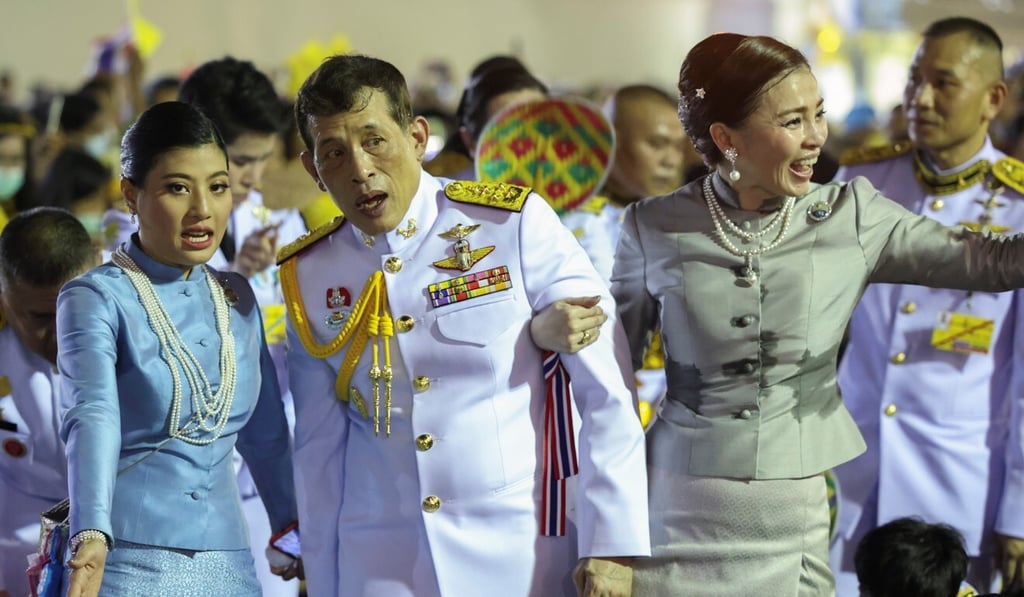Advertisement
Thailand protests: King Vajiralongkorn’s PR gambit ups stakes in war for popular support
- King Maha Vajiralongkorn’s comments over the weekend in regard to pro-democracy protesters have been cast as a bid to see who has ‘numerical legitimacy’ among Thais
- Analysts say the royal family’s public appearance, including Queen Suthida and consort Sineenat Wongvajirapakdi, underlined an unprecedented charm offensive
Reading Time:4 minutes
Why you can trust SCMP

01:32
Thai king and queen meet thousands of supporters as pressure from anti-government protests mounts
Thai king and queen meet thousands of supporters as pressure from anti-government protests mounts
When Thai King Maha Vajiralongkorn gave impromptu comments to a foreign television reporter amid a sea of royalists on Sunday, social media reeled with shock at the break with generations of tradition – although the youth-dominated protest movement was quick to react to the sudden royal PR gambit.
Local journalists were surprised at how reporter Jonathan Miller, representing CNN and Britain’s Channel 4 news, thrust a microphone at the King, who was greeting thousands of supporters outside the Grand Palace in the old part of Bangkok, and politely asked the monarch for his thoughts on the path ahead for Thailand given near-daily pro-democracy rallies playing out as the kingdom grapples with a flailing economy.
“I have no comment,” the monarch started out by saying, over the din of cries of “Long Live the King”.
Advertisement
But then, he added: “We love them all the same, we love them all the same,” referring to protesters calling for sweeping reforms including limiting the role of the ultra-rich monarchy, which is protected by tough lese majeste laws.
To Miller’s question about whether there was room for compromise between pro-democracy protesters and the Thai government, he replied: “Thailand is the land of compromise”.
Advertisement

Advertisement
Select Voice
Select Speed
1.00x